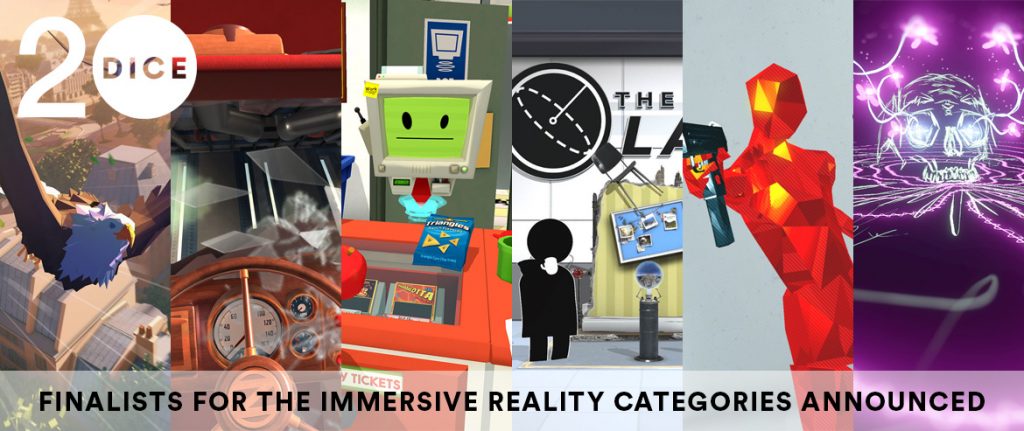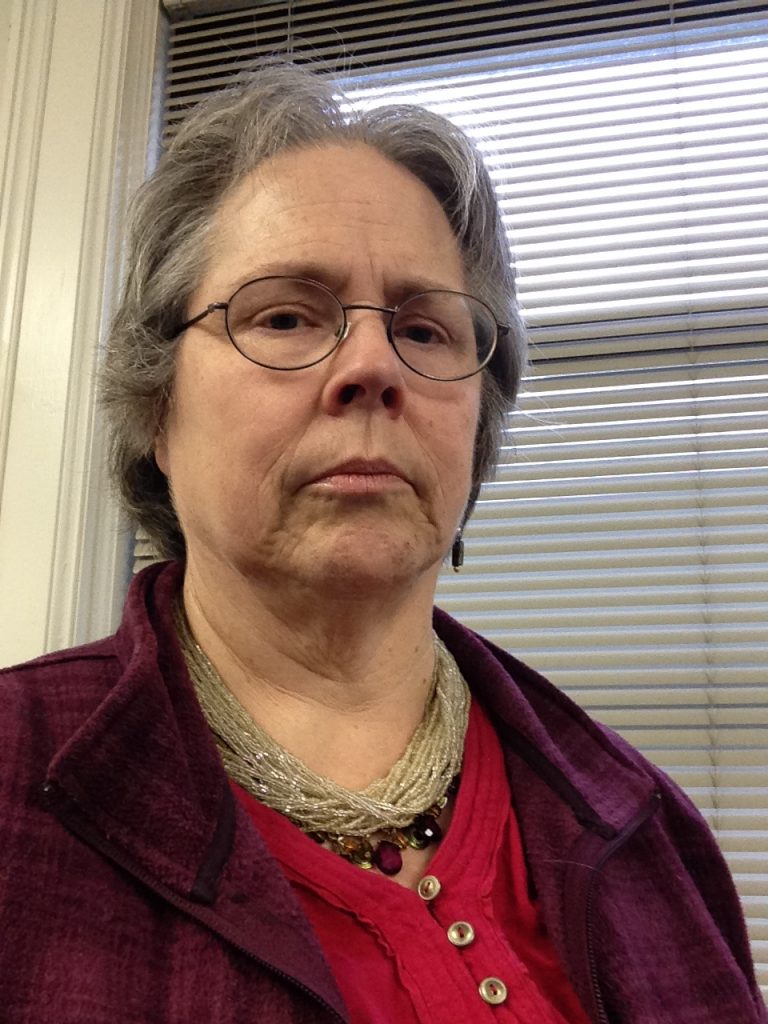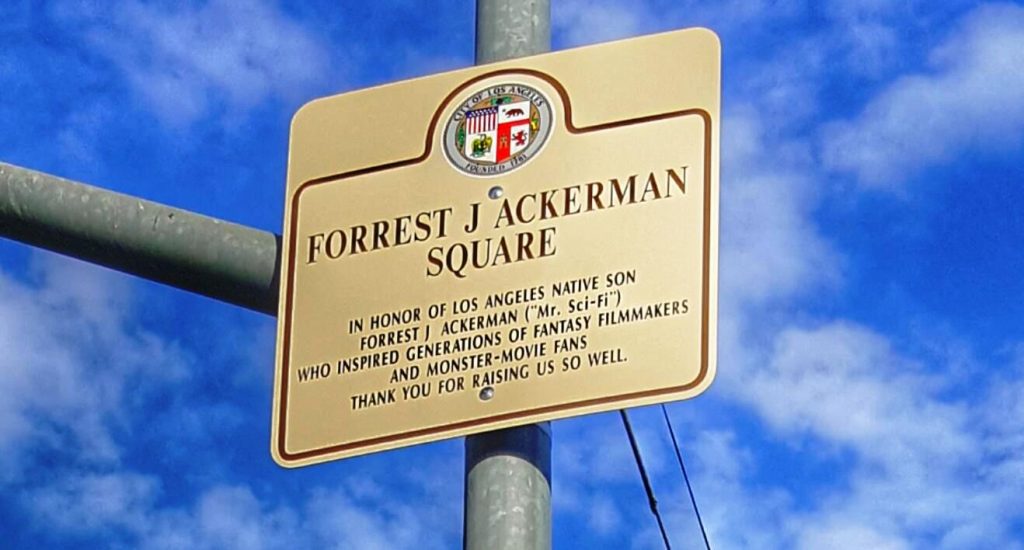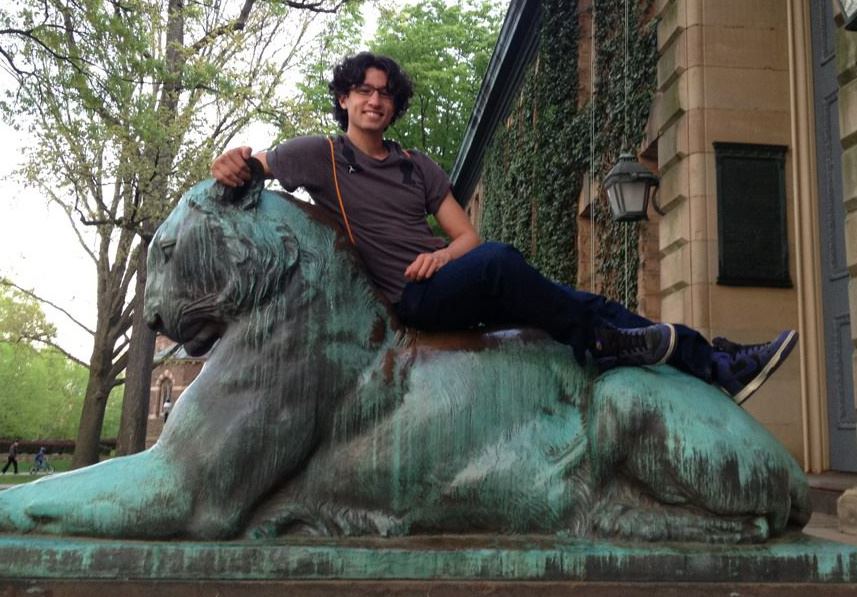
Mini Hugo rocket carried into space and photgraphed by astronaut Kjell Lindgren in 2015.
By Shaun Duke and Aaron Beveridge:
Introduction
In April 2015, conversations with several non-U.S. fans about the then-developing controversy surrounding the 2015 Hugo Awards motivated the work that follows. Though no digital archeology of that conversation remains, a passing remark that the Sad/Rabid Puppies controversy is a product of the American culture wars sparked the work that follows. Unfortunately, the Hugos remain subject to the whims of American politics, whatever they might be at a given time. This prompted the initial question as to whether or not many non-U.S. fans held this same view of the Hugo Awards. Shortly after that conversation, a survey was created to ask that very question.
The initial aim of the survey was to determine how non-U.S. fans discovered the Hugo Awards, whether they considered the awards an American affair, and what they thought of the Sad/Rabid Puppies controversy. We began the survey with two assumptions based on the conversations that inspired this survey: (1) that non-U.S. fans largely viewed the Hugos as an American award which often excluded non-U.S. works by default; and (2) that non-U.S. fans were largely unfavorable to the Sad/Rabid Puppies controversy. Additionally, we used the survey as an opportunity to learn more about how non-U.S. fans learned about and engaged with the Hugos.
The following sections provide some background information, our methodology, and details about the results of the survey. This project summarizes and investigates the perception of non-U.S. fans. Certainly, it by no means captures a fully-representative global opinion of the effects that American politics have on the Hugos, but we were able to gather enough international survey responses to feel that our results add to the ongoing conversation. As with any opinion survey, the responses are merely that: the gathered opinions of the individuals that decided to respond to the survey.[1]
The Controversy
The Sad Puppies is a slate voting campaign begun in 2013 designed to counter the perceived dominance of left-leaning science fiction and fantasy literature — what conservatives in the movement initially called “message fiction.” As the movement progressed, the supporters and writers of these works of “message fiction,” particularly those most opposed to the Sad Puppies movement, were referred to as the snobbish literati and, more recently, “Social Justice Warriors” (borrowing a term more broadly associated with the Gamergate movement); detractors have accused the Sad Puppies of being racists and sexists (Wallace). Members of both sides have argued that the other is, in effect, actively destroying the science fiction and fantasy community, either through regressive politics and selfishness or through oppressive political correctness.
While there are many motivations behind these campaigns and their detractors, the veracity of which is not the purview of this report, the act of slate voting to “hack” the Hugo Awards took the campaigns from the fringes of science fiction discourse to the forefront of the awards discussion. The greatest Puppies controversy emerged in 2015, in which a new group called the Rabid Puppies (a more reactionary slate voting group than their Sad Puppies counterparts), organized a larger following to effectively dominate the 2015 Hugo Awards nominee ballots. The final ballot — after several nominees recused themselves from consideration — contained 59 nominees from Sad and Rabid Puppies out of 85 total nominee slots. The campaigns were less successful when final votes were cast. In the end, no Sad or Rabid Puppies selection won an award, with all categories containing only slate items resulting in no awards being given.
In 2016, the Rabid Puppies had a similar influence on the awards, with 64 of their 81 selections making the final ballot; however, unlike in 2015, the Rabid Puppies slate for the 2016 Hugo Awards ballot consisted of many works chosen to deliberately counter the “No Award” process by essentially forcing the “sf/f left” to either “No Award” works they otherwise would support OR compromise their anti-slate values in order to support those same works. Voters responded to this latest variation of the Kobayashi Maru[2] by rejecting “Trojan Horse” options[3] and handing awards to an overwhelming number of women and people of color.
Though the Sad Puppies were active in 2016, the shift from a slate to a longer, categorized recommendation list that favored a more diverse group of works and creators has made their present efforts less controversial than in previous years.
Methodology
The survey was conducted between April 22nd, 2015 and July 5th, 2015 using Google Forms with a combination of long answer and yes/no questions. To find participants, the survey was disseminated through Twitter, Facebook, Google+, and, in rarer instances, email. Participants were not asked for their names or identifying markers to protect their identities and to facilitate honest responses.
The original questions were as follows:
- What is your country of origin? (One-word Answer)
- How did you hear about the Hugo Awards? (Short Answer)
- Do you nominate/vote for the Hugo Awards? (Multiple Choice: Yes/No/Sometimes)
- Do you think the Hugo Award is primarily an American award? (Multiple Choice: Yes/No/Mostly)
- If you answered “yes” to the previous question, please explain your position here. (Long Answer)
- Do works nominated for the Hugo Awards reflect sf/f as you see it? (Long Answer)
- Do you think the makeup of the Hugo Awards voters reflects sf/f fandom as you see it? (Long Answer)
- Do you think others in your area share your opinion? Feel free to elaborate if necessary. (Long Answer)
- How do you view the current controversy regarding the Sad Puppies / Rabid Puppies and slate-based voting? Do SP/RP proponents (or opponents) represent fandom as you see it? (Long Answer)
- Do you feel drawn to certain Hugo categories more than others? If so, please explain. (Long Answer)
- Are there SF/F awards that you find more relevant? (Short Answer)
- Is there anything else you would like to add? Feel free to use this space for additional thoughts! (Short Answer)
We might have anticipated that the answers to some of these questions would prove redundant or repetitive. In some cases, more participants answered one related question or another. Inevitably, we chose to reduce the questions used for our data set; this removed redundancy and focused the survey on the original intent: to understand how non-U.S. fans engage with the Hugo Awards and its current controversy. In the end, we narrowed the questions down to the following categories, which will be explored in the following section:
- Participant Countries
- Are the Hugos an American Award?
- How did the participants her about the Hugos?
- Did the participant vote for the Hugos?
- What is the participant’s opinion about the Sad / Rabid Puppies and Slate Voting?
The next step involved coding the answers for category 5. In order to do so, we applied the following rubric to the answers:
- Undecided: the participant offers no opinion on the subject.
- No Answer: self-explanatory
- Agree: unequivocal agreement; the participant states “yes” with no reservations, offers absolute support of the Sad / Rabid Puppies side, and/or uses extreme language to describe the anti-Sad / Rabid Puppies or related groups.
- Mostly Agree: nuanced agreement; the participant may sincerely agree with slates or the Sad / Rabid Puppies, but they offer concessions concerning the other side’s position or qualifications in their language.
- Mostly Disagree: nuanced disagreement; the participant may sincerely disagree with slates or the Sad / Rabid Puppies, but they offer concessions concerning the other side’s position or qualifications in their language.
- Disagree: unequivocal disagreement; the participant states “no” with no reservations, offers no statements of understanding concerning the opposite side, and/or uses extreme language to describe the Sad / Rabid Puppies.
We individually coded the entire dataset for category #5 and ranked each answer according to the above rubric, and then we compared our individual rankings to determine any areas of disagreement. Where disagreements existed, we chose the more conservative (less extreme) of the two options.
Once completed, we compiled all of the data into graphs and charts, which can be found in the following section.
Our method presented several limitations for the breadth and specificity of the data:
- The survey was conducted in English. As such, the majority of the participants came from countries in which English is regularly spoken — specifically, North America, Europe, Australia and New Zealand. Roughly 90.6% of our participants came from these regions and 9.4% came from other areas. It is possible that the Hugo Awards have had minimal penetration into the non-English-speaking world due to its association with the United States and with English-language works — the success of The Three-Body Problem by Liu Cixin and “Folding Beijing” by Hao Jingfang notwithstanding.
- Some of the questions on the survey resulted, as indicated above, in repeated answers or in participants simply pointing to another question to find their answer. As such, we chose to remove some questions from the final data set to limit redundancy and to provide focus.
- The survey resulted in responses from approximately 393 people and should not be viewed as anything but the opinions of 393 people. It is likely impossible to determine the size of the population of non-U.S. science fiction and fantasy fans in the world or to adequately conduct a study whose sample size could account for the variations of such a population.
Despite the limitations of our survey, the results offer some insight into the science fiction community outside of the United States.
Results
The following sections detail our findings for each of the five categories.
Category #1: Participant Countries
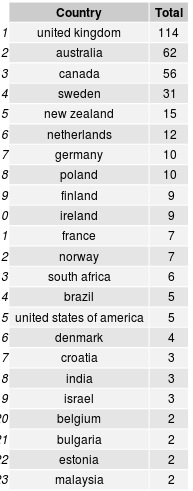 [4]
[4]
Unsurprisingly, the majority of the participants came from countries with strong or dominant English-speaking populations, including Australia (15.7%), New Zealand (3.8%), Canada (14.2%), the United Kingdom (comprising England, Scotland, Wales, and Northern Ireland)(29%), Ireland (2.3%), France (1.7%), and others. Europe dominates with 56.5% of the responses originating from the continent.
Unfortunately, countries outside of Europe, North America, Australia, and New Zealand are noticeably sparse. Though we did receive some responses from surprising places — Zambia (0.02%), Trinidad and Tobago (0.02%), and Malaysia (0.05%), for example — our survey regrettably missed the sizable science fiction and fantasy community in China, Japan, and South Korea, among other places. This is almost certainly due to the language of our survey (English) and to our own failure to do more to reach into those communities. In the future, we hope surveys like this will be translated for non-English audiences and that more will be done to reach out to fandoms outside of the English-speaking world.
The participant countries list also contains a nation that one would rightfully assume doesn’t belong: the United States of America. Our survey didn’t account for individuals from the United States who have since taken up residence elsewhere OR individuals from outside the United States who have taken residence within the states. Though they accounted for only 1.2% of the responses, we chose to keep them in the survey as a reminder of avenues that we might explore in the future.
Category #2: Are the Hugos an American Award?
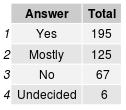
We anticipated that the answers to this question would lean toward our own initial assumptions, in part because the conversations that led to the survey took a similar position. Unsurprisingly, then, the majority of participants either emphatically declared Yes (49.6%) or Mostly (31.8%), with a smaller percentage (17%) stating either that the awards are not an American award or that they shouldn’t be perceived that way.
Many of the respondents argued that the awards were a reflection of the most dominant group within the larger field; the United States was typically identified as dominant within the sf/f field at large for what should be obvious reasons (the size of its publishing industry and fandom and the global influence of U.S. culture). Some respondents were quick to note that just because the awards are American in nature, either due to its history or the culture that influences it, that doesn’t necessarily mean they are a reflection of American culture as a whole. Indeed, many of the responses to our survey seemed to recognize the fractionality of American fandom in the basic sense of being loosely split across region, topic, age group, etc.
How respondents felt about the Hugo Awards “being American” varied between resigned to the current state of the awards and optimistic about a more international future. Those who were more resigned tended to agree that the awards have favored American fiction due to history. One respondent offered three reasons for this:
1) Locals make up a large proportion of each Worldcon. Most Worldcons are held in the US, therefore a large proportion of the Voting group is always American
2) Up until the 21st Century voting was mostly in person (yes, paper ballot was possible but the majority of ballots were not paper). e-voting mean that non-attendees can vote easily now. And as most Worldcons were in the US, pre-21st Century voters were therefore mostly American[5]
3) American fiction is known well in the rest of the world, but non-American literature is not known well in America. Therefore, the way the nomination system works, American works get on the ballot more often
[Mr. Glyer notes that statement 2) may confuse Site Selection voting with Hugo Awards voting. As far as we are aware, Hugo Awards voting has always involved mail-in ballots.]
The more optimistic side of this conversation noted that the greater influence of the Internet on engagement could potentially make the awards more inclusive, though such responses were occasionally tempered by the acknowledgement that the awards would probably always maintain an American focus for the exact reason listed in the first point above: Worldcons are typically held in the United States.
For those who listed “Mostly” as their answer, the United Kingdom, Canada, and Australia were often listed as being secondary focuses for the Hugo Awards. However, for a small minority of respondents, the notion that the awards might be international at all was met with either severe skepticism or outright rejection.
Category #3: How did you hear about the Hugos?

For the most part, the answers were expected, with the majority of participants (63.3%) stating that they learned about the Hugos from traditional sources such as book covers, magazines, the Internet, conventions, marketing, blogs, and the news. There is certainly overlap in the various categories, as some who answered “store” may have seen a Hugo Awards sticker on a book; however, we chose not to interpret words for the participants, opting instead to place such items as “store” and “university” in their own categories.
Category #4: Have you voted for the Hugos?

We were surprised to find that the majority of participants (47.3%) have never voted for the Hugos or consider themselves not to be voters because they rarely vote. In retrospect, we probably shouldn’t have found this alarming given that only 6 (30%) of the Worldcons in the last 20 years have occurred outside of North America the U.S.. Of those 6, only 2 have been held in a country whose primary language is not English (Nippon, Japan in 2007 and Montreal, Quebec, Canada in 2009). In total, only 18 (24.3%) of the 75 concluded or upcoming Worldcons have been or will be held outside the U.S.; 2017 will see Worldcon hosted in Finland for the first time (“The Long List”).
Combined with the responses to Category #2, it is clear that the perceptions of the Hugos as an American award influences the voting activity of the participants, with only 18.8% declaring that they are regular voters. This is also supported by the fact that the majority of Worldcon attendees and supporters hail from the United States (see the chart below). In the last four Worldcons, Americans were the overwhelmingly dominant demographic in three, each convention hosted in the United States; at LonCon3, whose membership naturally skewed towards the United Kingdom, Americans were the second largest demographic next to members from the host country (44.9%). The data — and the history of the convention in the United States — reflect the notion that the location of a Worldcon heavily influences the degree to which non-U.S. fans participate, as to be expected given that the majority of non-U.S. survey participants see the Hugo Awards and Worldcons in general to be rooted in American fandom (as clearly shown in Category #2). To our knowledge, however, no data is currently available for the voting demographics for every Hugo Award.
| Convention |
U.S. Attending / Supporting |
Non-U.S. Attending / Supporting |
Source |
| ChiCon 7
Worldcon 70
2012 |
84.9% |
15.1% |
(ChiCon 7 Progress Report #4) |
| LoneStarCon3
Worldcon 71
2013 |
88.7% |
11.3% |
(LoneStarCon3 Progress Report #4) |
| LonCon3
Worldcon 72
2014 |
44.1% |
55.9% |
(LonCon3 Membership Demographics) |
| Sasquan
Worldcon 73
2015 |
82.4% |
17.6% |
(Sasquan Member Numbers) |
Category #5: What is your opinion of the Sad Puppies / Rabid Puppies and Slate Voting
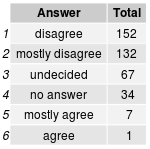
If 47.3% of participants do not vote in the Hugo Awards, it is not surprising that a sizable portion of them either had not decided what they thought about the Sad Puppies/Rabid Puppies controversy or had no opinion whatsoever (25.7%). However, of those who had formed an opinion, almost all of them (72.3% in total and 97.3% of those who had an opinion) were neither favorable to the Sad Puppies nor the Rabid Puppies, with most vehemently disagreeing with the entire affair (38.7% of the total respondents and 52% of those who had an opinion).
Participants were not particularly shy about their opinions either. Some of the most vocal detractors associated or compared the Sad or Rabid Puppies to neo-fascism, the Tea Party, Mens Rights Activists, and Gamergate. These sorts of terms coincided with concerns about the damage the SP/RP event would have on the Hugo Awards and SF/F fandom in general. For example, one respondent argued that
It has caused irreparable damage to the reputation and good names of the Hugo and of SFF fandom, which is almost entirely the fault of established fan-run management of the community. In less than a decade, the Hugo has gone from a calling card to Hollywood for SFF creators, to a flame war with white supremacists and Tea Party goons. You could see – from space, ironically – that this was going to happen and yet the mostly white and mostly American SFF fandom sat on its hands and hoped the problem would go away. Just as American fandom sat on its hands and hoped Marion Zimmer Bradley’s child abuse wasn’t real (her photo was still up at the London world con as a “professional SF writer). Yes, the puppies represent traditional SFF fandom just as Fox News playing in a MacDonald’s in Indiana represents the American midwest. Most people stopping by a MacDonald’s probabaly don’t agree with Bill O’Reilly but they do nothing to stop his toxic opinions from spreading in public space.
Part of this perspective was common among those who most vehemently opposed the SP/RP project: namely, that the movement is both irrational and regressively conservative. However, the above respondent is unusual in that they also place the blame partly on the feet of American SFF and fandom.
Most respondents, however, took the perspective, as the following respondent did, that SP/RP proponents viewed the world in “black and white” and “presumed themselves to be the ‘good guys’ and so [looked] around for enemies.” Respondents in the two negative categories also cited “diversity” as a primary concern; quite a few held a similar position as the following: “I think the Puppies represent an older demographic that’s threatened by the growing diversity of the genre — or, I should say, the growing visibility of diversity that has always been there.” Diversity, of course, was a major issue in the conversation surrounding the events of 2015.
Not all respondents were entirely uncharitable to the SP/RP project. Even those who largely viewed the movement as negative occasionally expressed an understanding of the movement’s intent or, more likely, an acknowledgement that the SP/RP proponents “[meant] to do a good thing by expanding the voter base [to] a slightly under-represented group (fans of military sf, Baen, Analog, etc.).” However, these same respondents also rejected the methods used by the leaders of the SP/RP group (i.e., slate voting). In a lot of cases, these slightly more favorable respondents differentiated between understanding or acknowledging the Sad Puppies and unambiguously rejecting the Rabid Puppies.
There were also a handful of respondents who took a positive view of the Sad Puppies in particular. In almost all of these cases, the response specifically cited “ending political correctness” as the reason; for several respondents from the United Kingdom, the Jonathan Ross controversy in 2014 was the primary example of “political correctness” run amok.
Conclusions
The majority of non-U.S. participants agreed that the Hugo Awards are definitively an American award; they also overwhelmingly rejected the rhetoric and agenda of the Sad and Rabid Puppies, often emphatically so.
However, there are several unanswered questions which might be answered by a future survey. First, we wonder how non-American fans living within the United States and American fans living outside of the United States view the ownership of the Hugo Awards and its controversies. Second, we think a future survey should ask the participants who never voted or only occasionally voted what motivated their decisions to abstain entirely or participate only sporadically; this might help us better understand unseen divisions within international science fiction fandom. Finally, we think it crucial to reach out to communities that were not present in our survey. In the map below, the black areas represent areas from which we received no responses:
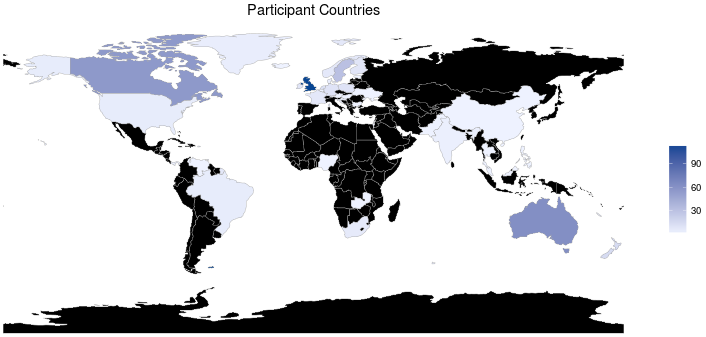
As we suggested earlier in the essay — and as the map makes clear — we were unable to reach communities in these areas for a variety of reasons, including language and the limitations of our outreach methods. We hope to conduct a much more extensive survey in the next year in order to fill some of these gaps.
Special thanks goes to all those who helped create and disseminate the survey, including Ian Sales, Maureen Kincaid Speller, and many others.
Biographies
Shaun Duke is a PhD student at the University of Florida studying science fiction, postcolonialism, Caribbean literature, and the rhetorics of fandom. His non-fiction work has appeared in Science Fiction Film and Television, Extrapolation, The Journal on the Fantastic in the Arts, Like Clockwork (forthcoming from the University of Minnesota Press in December 2016), and Strange Horizons. Shaun also hosts the Hugo Award-nominated podcast, The Skiffy and Fanty Show, among others, and co-edited Speculative Fiction 2014: The Year’s Best Online Reviews, Essays, and Commentary (The Booksmugglers Publishing) with Renee Williams. You can find out more about Shaun’s podcasts, writing, etc. at http://www.shaunduke.net/
Aaron Beveridge is a doctoral student in the University of Florida’s Department of English. His research intersects writing studies and data science paradigms — focusing on programming, data mining, and data-visualization as they motivate the ongoing expansion of research methods in rhetoric, writing, and the digital humanities. Grounded primarily in the study of networked writing and trend circulation, his research interests also include technical communication, the rhetoric of science, media ecology, and maker culture. Visit Aaron’s personal website: here.
Sources
ChiCon 7 Progress Report #4. Chicago: ChiCon 7, 2012. Print.
“LonCon3 Member Demographics.” Member Demographics. LonCon3, July 2014. Web. 29 June 2016. <http://www.loncon3.org/demographics.php>.
LoneStarCon 3 Progress Report #4. San Antonio: LoneStarCon 3, 2014. Print.
“The Long List of World Science Fiction Conventions (Worldcons).” The Long List of Worldcons. WSFS Long List Committee, n.d. Web. 29 June 2016. <http://www.smofinfo.com/LL/TheLongList.html>.
“Sasquan Member Numbers.” Sasquan — 2015 Worldcon. Sasquan, 30 June 2015. Web. 29 June 2016. <http://sasquan.org/member-numbers/>.
Wallace, Amy. “Who Won Science Fiction’s Hugo Awards, and Why It Matters.” Wired.com. Conde Nast Digital, 23 Aug. 2015. Web. 02 Feb. 2016. <http://www.wired.com/2015/08/won-science-fictions-hugo-awards-matters/>.
Footnotes
[1] This survey is an informal, non-academic survey.
[2] Technically, this situation is closer to a Cornelian Dilemma than the infamous Star Trek test of character.
[3] “Trojan Horse” votes refers to items places on the final ballot by voting campaigns that are designed to force competing camps of voters to choose between choosing what they love or maintaining their anti-slate principles to vote “No Award” a second time around. For the most part, voters seemed to reject this dilemma. One interpretation holds that voters voted on merit, an argument made in defense of the Hugo voting process on numerous occasions; it is also likely that some voters were able to identify deserving nominees in the list.
[4] The following countries had one respondent each and were not listed in the countries chart: Austria, China, Hungary, Iceland, Luxembourg, Nigeria, Pakistan, Panama, The Philippines, Thailand, Trinidad and Tobago, Ukraine, Venezuela, and Zambia.
[5] Mr. Glyer notes that this statement may confuse Site Selection voting with Hugo Awards voting. As far as we are aware, Hugo Awards voting has always involved mail-in ballots.

